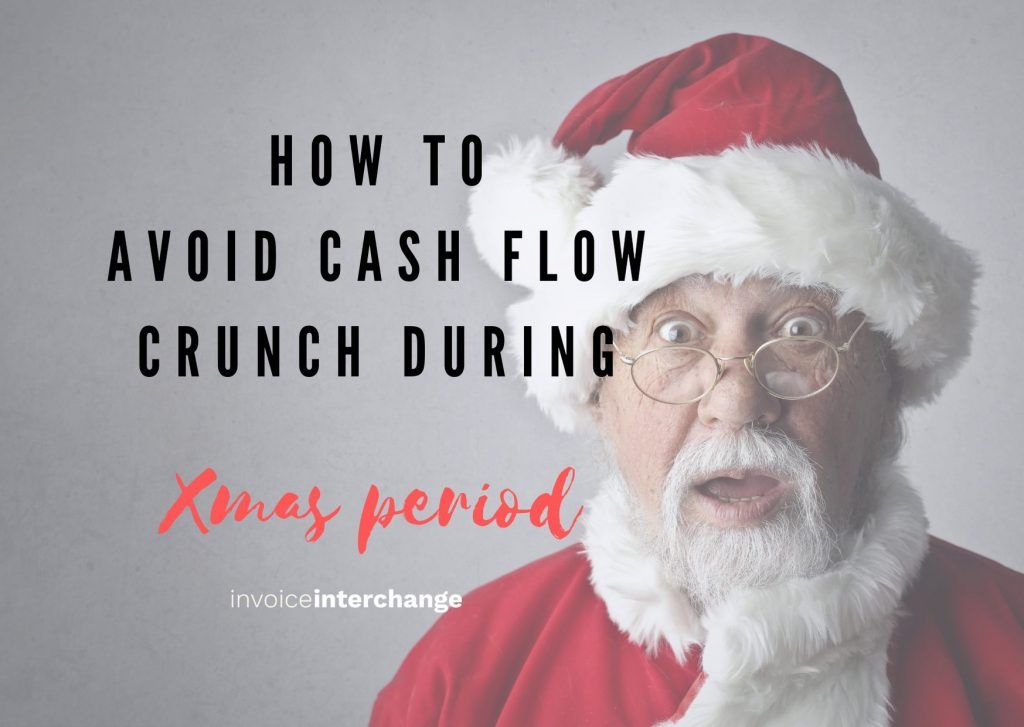
How Businesses Can Avoid A Cash Flow Crunch Over Christmas
Christmas is just round the corner! The festive period is usually a double whammy when it comes to cash flow for many businesses. We have put together our top tips to help your business avoid cash flow challenges over Christmas and the festive period.
Why is there a cash flow crunch over the festive period?
First, we need to understand what causes a cash flow crunch during the festive period? It comes down to the imbalance in cash outflow and inflow.
Increased cash outflow
As businesses get ready to meet higher demand over the festive period, they may need to secure additional inventory and/or hire more staff to meet the seasonal spike. It is a common scenario that payments need to be made out to your suppliers and employees before your sales activities translate into cash received from customers. This results in a higher cash outflow that is not compensated by a timely inflow of cash.
Lower cash inflow
The festive season is also when many companies have a planned shutdown. For others who continue operating, staff levels are low as many are usually away on holidays. This usually results in a delay when it comes to processing payments to suppliers and consequently affects when you might receive payments from your customers. Your outstanding invoice will most likely end up being paid later than usual. You may even have to wait till the January pay cycle in the new year to receive your payment. This will affect your cash inflow.
With higher than usual cash outflow and delays in cash inflow, many businesses have to squeeze every cent to get through the festive period. Even worse, forgo sales orders as they may not have sufficient cash flow to support the higher demand.
So, what can businesses do to help prevent a cash flow crunch over the Christmas and festive period?
1. Create and update your cash flow forecast
The most important step is to understand what your cash flow looks like during the lead up to the festive period and beyond.
- Identify all possible expenses (e.g. inventories, utilities, logistic, sales and marketing activities, recruitment, Christmas related events, other operational expenses)
- Record when you are expected to pay these expenses and how much
- Forecast your festive period sales based on sales in previous years over the same period
- Record a realistic timeline for when you think you will receive payments from your customers
Many online accounting tools such as Xero or MYOB can automatically generate a Cash Flow forecast and chart for you once all information is keyed in.
2. Control your collection process
Ensure your collection process is stringent, especially during the festive period when you will need cash the most.
- Issue customer invoices promptly
- Keep in close communication with your customers to understand when payment can be expected
- Continue to monitor all outstanding invoices, especially when it becomes overdue
Check out our other tips on how to minimise overdue payments.
3. Work with your suppliers
Remain in close contact with your suppliers to ensure you get the goods that you need in a timely manner. Also, potentially request for or negotiate to extend payment terms during the festive season.
4. Prioritise your expenses
Minimise all non-essential expenses during this period to help you conserve cash. If there are any large ticket items that you need to incur (e.g. staff Christmas party), it is advisable to put away a certain amount of cash aside throughout the year to help your business meet such expenses.
5. Obtain additional funding
It is always wise to have available an external finance facility that you can tap into as and when you need additional cash boosts. This will help you achieve the targeted sales number that you are planning for with confidence.
At InvoiceInterchange, we offer a flexible factoring facility that gives you funds upfront instead of waiting 30, 60 or even 90 days for your customer to pay. You only draw down as and when you need to, there is no minimum usage requirement and no contract lock-ins. You only pay as you use, giving you control and confidence over cash flow.
Related Articles

Alternative Financing for Businesses in Singapore: Exploring Diverse Funding Options

Top Strategies to Help You Manage Late Payment Effectively
